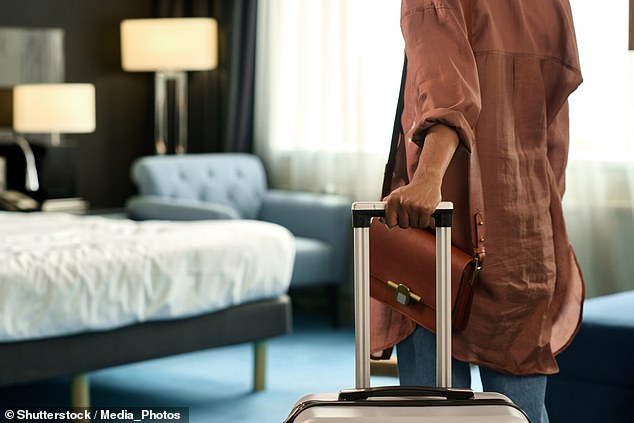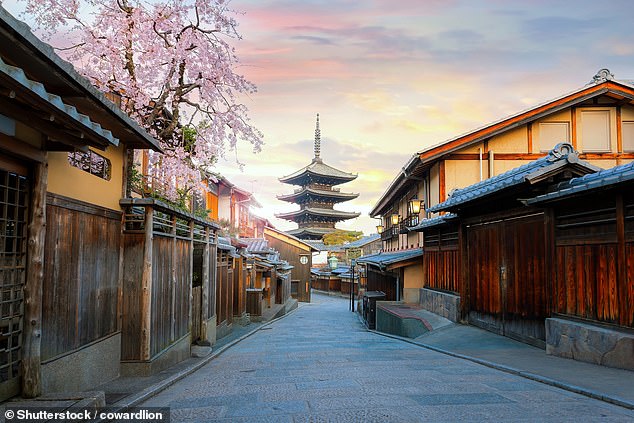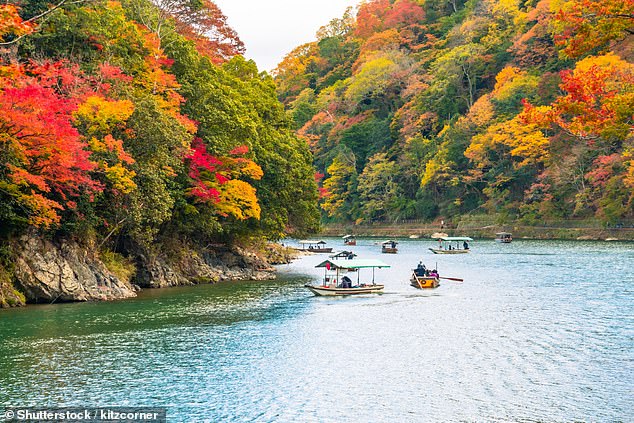Japan has approved its highest-ever hotel tax which could see guests charged up to £49 per person per night.
Kyoto, once the capital of Japan, is famous for its thousands of Buddhist temples and Shinto shrines.
There are shops where tourists can rent traditional Japanese clothing and then visit holy sites and take selfies.
But with the influx of visitors comes serious congestion on the streets and at popular beauty spots.
Following a record-breaking 36.9 million international visitors in Japan in 2024, the Ministry of Internal Affairs and Communications has confirmed that a hotel tax will come into effect in Kyoto from March 2026.
There is already a tax that has been in place since 2018 but currently the nightly rate is set at a maximum of £4.90 for everyone.
Kyoto is set to increase its accommodation tax by up to 900 per cent to £48.92 per person per night for the top category of hotels.
This hike will make Kyoto’s accommodation tax the highest in Japan.

Japan has approved its highest-ever hotel tax which could see guests charged up to £49 per person per night

Kyoto, once the capital of Japan, is famous for its thousands of Buddhist temples and Shinto shrines and is currently riding a major tourism boom
This is still a staggered tax system and the top-tier rate only applies to luxury hotel rooms priced at £489 or above per night.
A £19.70 tax per night will also be charged to those staying in rooms that cost between £246 and £492.60.
A £4.90 tax will be charged to those staying in rooms priced between rooms costing between £98.50 and £246.30.
The lowest hotel tax will be of £0.98 for hotels costing £29.50 and below. For those staying in rooms costing between £29.60 and £98.50, the levy will cost them £1.97 per night and per person.
The tax has been agreed on to ensure tourists ‘bear the cost of countermeasures against overtourism’.
It comes as overtourism has sparked impassioned protests in major holiday destinations this year, particularly Spain.
The Mail recently reported that a new report has found Brits are ignoring the sign-waving protesters begging visitors to stay away.
ABTA, which represents British travel agents and tour operators, found in its latest ‘Holiday Habits’ report that more than three quarters of people are aware of the tourism backlash but concluded there has been no indication of a ‘sizable change’ in travel intentions.

Pictured: Tourists take a boat trip at Arashiyama in Kyoto, Japan
Spain has seen the strongest backlash against tourism, with demonstrators taking to the streets in the mainland cities and the popular island destinations.
Demands range from limits on cruise ships to changing the rules around holiday homes.
While the data shows holidaymakers have sympathy with local people and destinations – 58 per cent of respondents said they are ‘concerned’ with how locals are impacted by travel – the southern European nation is still the go-to getaway for Brits.
But the effects of overtourism can be devastating for locals, visitors and the environment.
South American’s most famous archaeological site, Peru’s ancient Inca city of Machu Picchu, could be stripped of its ‘New World Wonder’ status after the initiative that awarded it the coveted title in 2007 questioned the future of the tourist attraction.
Hidden amongst lush Andes scenery, Machu Picchu, 50 miles northwest of Cuzco, dates back 600 years but was largely forgotten until the early 20th century. It’s been a UNESCO World Heritage Site since 1983, and last year attracted 3.4million visitors.
The fightback against overtourism is likely to see other major sights face a similar backlash in the coming years.
Share or comment on this article:
Popular Japan destination raises tourist tax by 900% to reduce overtourism

AloJapan.com